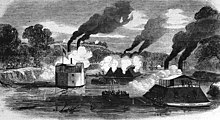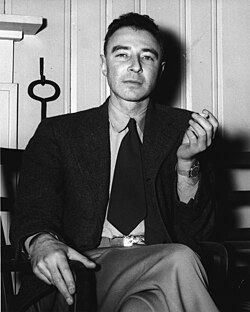Portal:History
The History Portal

History by Frederick Dielman
History is the systematic study of the past, focusing primarily on the human past. As an academic discipline, it analyzes and interprets evidence to construct narratives about what happened and explain why it happened. Some theorists categorize history as a social science, while others see it as part of the humanities or consider it a hybrid discipline. Similar debates surround the purpose of history—for example, whether its main aim is theoretical, to uncover the truth, or practical, to learn lessons from the past. In a more general sense, the term history refers not to an academic field but to the past itself, times in the past, or to individual texts about the past.
Historical research relies on primary and secondary sources to reconstruct past events and validate interpretations. Source criticism is used to evaluate these sources, assessing their authenticity, content, and reliability. Historians integrate the perspectives of several individual sources to develop a coherent narrative. Different schools of thought, such as positivism, the Annales school, Marxism, and postmodernism, have distinct methodological approaches.
History is a broad discipline encompassing many branches. Some focus on specific time periods, such as ancient history, while others concentrate on particular geographic regions, such as the history of Africa. Thematic categorizations include political history, military history, social history, and economic history. Branches associated with specific research methods and sources include quantitative history, comparative history, and oral history.
History emerged as a field of inquiry in antiquity to replace myth-infused narratives, with influential early traditions originating in Greece, China, and later in the Islamic world. Historical writing evolved throughout the ages and became increasingly professional, particularly during the 19th century, when a rigorous methodology and various academic institutions were established. History is related to many fields, including historiography, philosophy, education, and politics. (Full article...)
Featured picture
Did you know (auto generated)

- ... that the historical-romance novel My Tender Matador includes a fictionalized version of the attempted assassination of Augusto Pinochet?
- ... that the history of philosophy in India is characterized by its combined interest in the nature of reality, the ways of arriving at knowledge, and the spiritual question of how to reach enlightenment?
- ... that the Balconcillo mutiny is considered to be the first coup d'état in the history of Peru?
- ... that Chris Wroblewski was the starting point guard for the winningest team in Ivy League history?
- ... that despite his distinguished family history, musicologist Yuri Shcherbinin told friends that "what matters most is what you are, not who your ancestors were"?
- ... that Gary Tuggle, as head of Philadelphia's Drug Enforcement Administration division, led potentially the largest prepackaged heroin seizure in Delaware history?

Calvin Coolidge (born John Calvin Coolidge Jr.; /ˈkuːlɪdʒ/ KOOL-ij; July 4, 1872 – January 5, 1933) was the 30th president of the United States, serving from 1923 to 1929. A Republican lawyer from Massachusetts, he previously served as the 29th vice president from 1921 to 1923 under President Warren G. Harding, and as the 48th governor of Massachusetts from 1919 to 1921. Coolidge gained a reputation as a small-government conservative with a taciturn personality and dry sense of humor that earned him the nickname "Silent Cal".
Coolidge began his career as a member of the Massachusetts State House. He rose up the ranks of Massachusetts politics and was elected governor in 1918. As governor, Coolidge ran on the record of fiscal conservatism, strong support for women's suffrage, and vague opposition to Prohibition. His prompt and effective response to the Boston police strike of 1919 thrust him into the national spotlight as a man of decisive action. The following year, the Republican Party nominated Coolidge as the running mate to Senator Warren G. Harding in the 1920 presidential election, which they won in a landslide. Coolidge served as vice president until Harding's death in 1923, after which he assumed the presidency. (Full article...)
On this day
April 7: National Beer Day in the United States
- 1655 – After a conclave lasting eighty days, the College of Cardinals elected Fabio Chigi as Pope Alexander VII.
- 1945 – World War II: U.S. forces sank the Japanese battleship Yamato during Operation Kikusui I in the East China Sea.
- 1994 – Rwandan Civil War: The Rwandan genocide began a few hours after the assassination of President Juvénal Habyarimana, with hundreds of thousands killed in the following 100 days.
- 1995 – First Chechen War: Russian paramilitary troops began a massacre of hundreds of civilians in Samashki, Chechnya.
- 2001 – NASA's 2001 Mars Odyssey (artist's conception pictured), the longest-surviving continually active spacecraft in orbit around a planet other than Earth, launched from Cape Canaveral.
- Berengar I of Italy (d. 924)
- Martha Ray (d. 1779)
- Joseph Lyons (d. 1939)
- Dave Arneson (d. 2009)
Selected quote
What is the use of living, if it be not to strive for noble causes and to make this muddled world a better place for those who will live in it after we are gone?
— Winston Churchill, British statesman
Related portals
More Did you know...
- ... that, when Ghenadie Petrescu (pictured) was ousted from his post of Metropolitan-Primate, Romania experienced protests and riots?
- ... that the British destroyer HMS Highlander escorted Convoy SC 122 through the largest convoy battle of World War II in March 1943 and was unsuccessfully attacked by U-441 and U-608?
- ... that in 1911, John Gaunt's second biplane nearly crashed because a bystander bent the aircraft's elevator before a flight?
- ... that Themistokli Gërmenji, an Albanian nationalist, received the French Croix de Guerre in November 1917, but was executed shortly thereafter by a French military court?
- ... that fish-knives inscribed with Elokeshi's name were sold after her husband decapitated her with a fish-knife following her adulterous affair with a Hindu head-priest?
- ... that the ancient Roman dancer Galeria Copiola reached the age of 104?
- ... that to escape burning at the 1393 Bal des Ardents Charles VI of France huddled under the gown of the Duchesse de Berry, while a lord leaped into a wine vat?
- ... that a junior officer on the USS Ancon refused King George VI entry to the ship's intelligence centre because no one told him the King "was a Bigot"?
Topics
Categories

History • By period • By region • By topic • By ethnic group • Historiography • Archaeology • Books • Maps • Images • Magazines • Organizations • Fictional • Museums • Pseudohistory • Stubs • Timelines • Chronology • People • Wikipedia historians
WikiProjects
![]() WikiProject History •
Ancient Near East • Australian History • Classical Greece and Rome • Dacia • Former countries • History of Canada • Chinese history • European history • Heraldry and vexillology • Indian history • Jewish history • Medieval Scotland • Mesoamerica • Military history • Middle Ages • History of Science
WikiProject History •
Ancient Near East • Australian History • Classical Greece and Rome • Dacia • Former countries • History of Canada • Chinese history • European history • Heraldry and vexillology • Indian history • Jewish history • Medieval Scotland • Mesoamerica • Military history • Middle Ages • History of Science
WikiProject Time • Days of the Year • Years
WikiProject Biography • Composers • Political figures • Saints • United States Presidents
Things you can do
 |
Here are some tasks awaiting attention:
|
Associated Wikimedia
The following Wikimedia Foundation sister projects provide more on this subject:
-
Commons
Free media repository -
Wikibooks
Free textbooks and manuals -
Wikidata
Free knowledge base -
Wikinews
Free-content news -
Wikiquote
Collection of quotations -
Wikisource
Free-content library -
Wikiversity
Free learning tools -
Wiktionary
Dictionary and thesaurus






















































